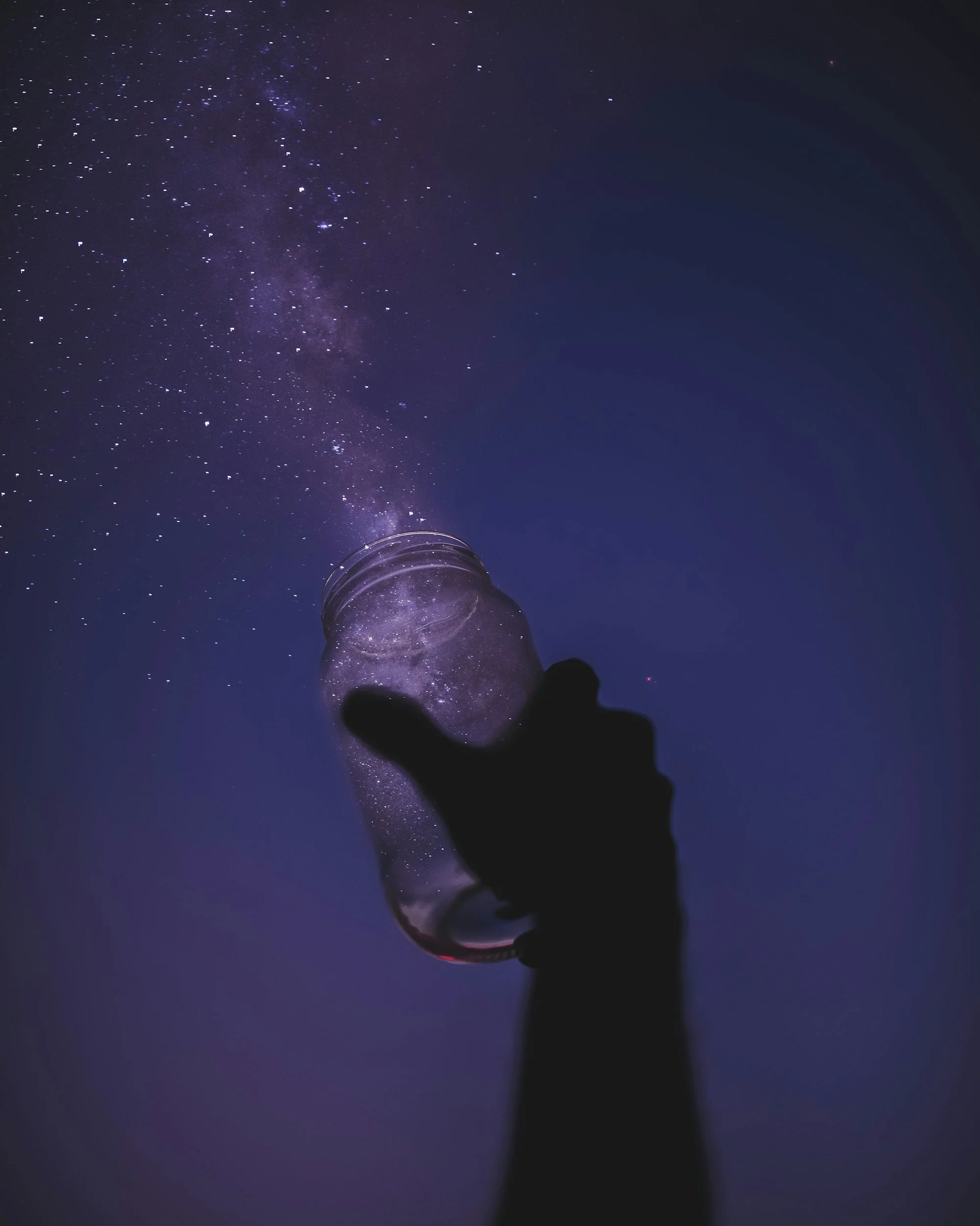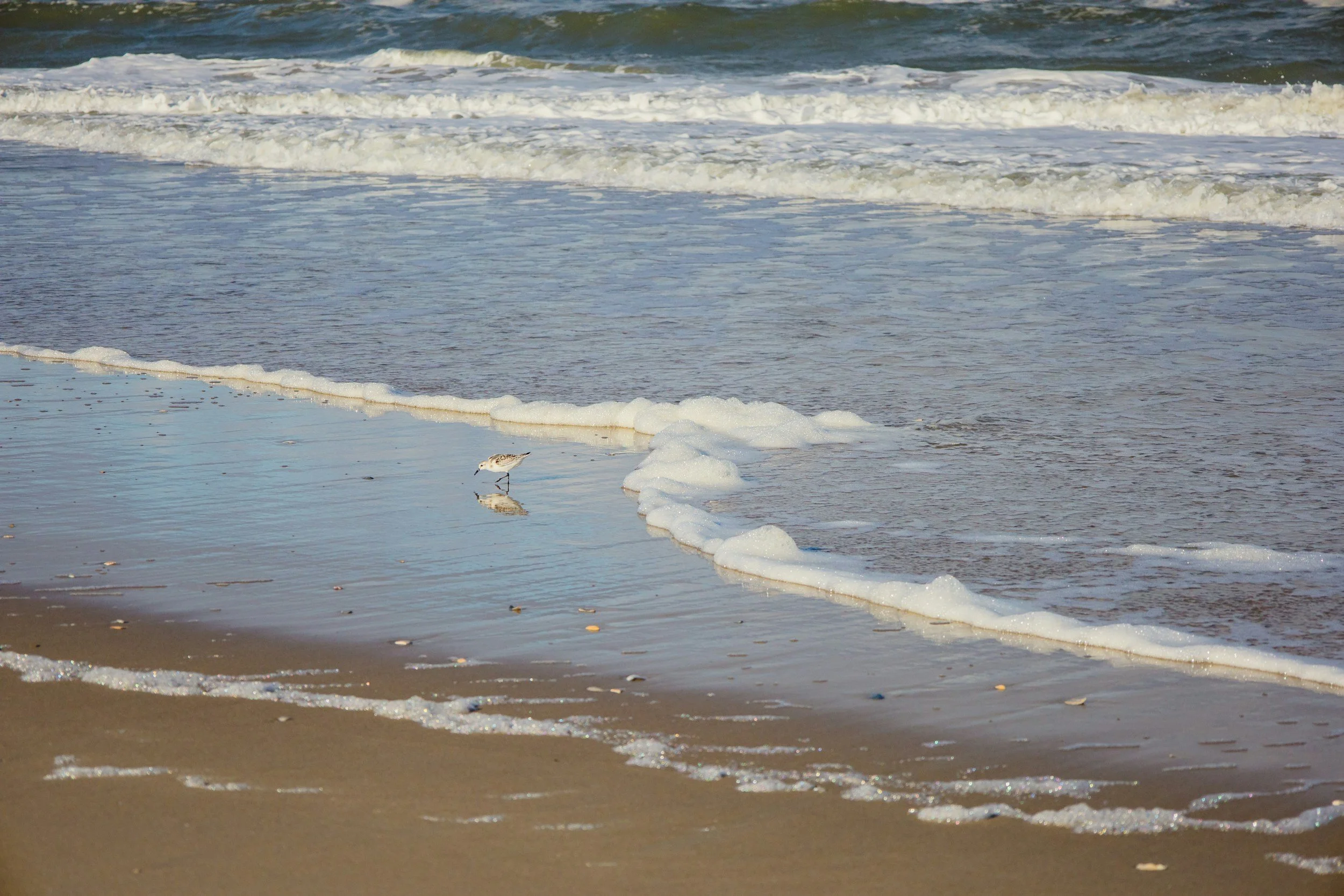On The Water's Edge
On the day of my best friend’s funeral, I received a friendly text from a colleague asking how I was enjoying my summer. Not knowing I was in despair, I did not want to distress them. So, I replied with a number of clichéd nautical terms. I felt like a ship without an anchor. I was lost at sea, set adrift. This proximity to water, without the sight of land, creates disorientation and resignation. My early grief came with a strange apathy born from a newfound loneliness and struggle. Will power and the habit of duty kept me tethered to the deck. I hoped I was not at risk of falling overboard. I am not a strong swimmer.
Grief comes in waves. Another reference to the sea, its indifference and power. We are pulled under by a strong current into the medium from which we were born. We are welcome underwater only as temporary guests. The loss of my friend, like that of my mother over twenty-five years ago, is unacceptable. Water and grief, when violently inhaled, fill the airways and lungs. Wide open or tightly shut, it doesn’t matter, eyes sting from salty seawater and tears. What am I doing so submerged? Does my sadness pull me toward the dead? Or do the dead want me to join them? In the season of my grief, I wondered if all the dead convened at the bottom of the sea with sirens as their mercenaries. Who ruled the immense empire of Davy Jones’ locker?
*
All the memorable undertakings of my childhood have an unresolved thickness about them. This comes in the form of a yearning to attain an explanation for things, even though it hardly matters anymore.
Decisions were made for me. Yet, I do not recall anyone helping me to understand the expectations of any given situation. I did not know what to expect on my first day of school, eating a meal at a friend’s house, or going on vacation. When I think about these experiences, part of me is still confused and groping. Hindsight has afforded me no clarity.
I learned to swim the summer I turned seven-years-old. Through word of mouth, my mother found that a neighbor was offering private swimming lessons from the convenience of his backyard pool. Mr. Dixon, the swimming instructor, was a squat and hairy British man with a leathery tan. When we were introduced, I immediately wondered why he wasn’t at the hospital.
Dr. Dixon was more enthusiastic than he needed to be. Perhaps he would have been better suited as a soccer coach, calling out plays and expressing outrage at missed opportunities. I indeed learned to swim and should give credit where credit is due, regardless of the alarm Dr. Dixon’s high-octane interjections of encouragement caused me.
On the last day of swimming lessons, after barely mastering a few strokes in the shallow end, Dr. Dixon ferried me to the deep end of the pool. My body sensed the depth under and around me. In its newness, I remained very still. Curiosity did not ignite my survival instinct. The force of physics sucked me under and I sank.
There was nothing at the bottom of the pool. I couldn’t hear anybody. I couldn’t see anything. I was alone. For a moment, all I felt was glorious comfort. I had no desire to resurface and join my mother, who was unable to swim herself. A child’s notion of time and the future are limited by their inexperience and lack of responsibilities. Only instinct and a handful of preferences schedule a childhood day, and on that sunny summer morning, I had neither.
*
My friend’s death is one in a long succession that I have named The Short Season.
TWO COLLEAGUES. One of suicide, the other of undisclosed causes. Both generate discrete speculation that strive, but often fail, to be respectful.
A FATHER. After learning her father died, my friend lost her mind for six hours. She repeatedly opened and closed her fridge door demanding to know how so much food got there.
A MOTHER. Another friend began to feel the effects of time travel. His mind returned to places and people that have long been forgotten. When envisioned the future, his life had not changed—he was stuck in the horror of his loss.
ONE HUSBAND. The wife cried so much after the cancer diagnosis that when the husband was diagnosed with the neuro-musclar disease, which would kill him quickly, she didn’t have any tears left.
BEST FRIENDS. The surviving best friends happen to be myself and my husband. Our friends did not know each other, but died within three weeks of each other.
Now, my husband and I are softer with each other, carefully observant of each other. We are constantly looking for signs to show us we will remain here with the living for a little while longer. Without acknowledging it out loud, for fear of prematurely summoning the inevitable, we are also looking for signs of uncertainty. Perhaps there may be some way to prepare. The reality is, my husband and I both know there is no adequate preparation we can make in anticipation of the other’s death.
Not two years have passed since The Short Season began.
*
I could not re-enter the world of dinners, drinks, and sparkling conversation. Numb and oversensitive for weeks, I keep sequestered in a self-imposed isolation, equipped only to perform tasks that would forgive me for intermittently sighing, shaking, and sobbing.
In The Year of Magical Thinking, Joan Didion quotes Emily Post’s book of etiquette, written exactly one hundred years ago: “At such a time, to some people companionship is a comfort, others shrink from their dearest friends.” I am part of the latter, dreading and loathing the company of others, especially those who have not seen a lively spirit wrestle to escape a wasted body. Those who have not heard the staticky words, “She’s gone.” Those who have not felt the forced parting of ways. Those who have not lived within the dissonance of denial.
My husband and I went for a long walk late one evening. We stopped to sit on a bench that overlooks the Taylor Creek ravine, a pit of shadows, the dark swaying tips of treetops quietly murmuring a lullaby.
“I’m going to pretend she’s dead,” I declare. Behind me, I can hear her laughing and laughing. I laugh too.
*
Six weeks after my friend died, Tessa travels ninety minutes by train from her home to Toronto. We meet at a ramen restaurant, a bright and airy space in Old Chinatown. Once we settle in our seats, I ask her what else she plans to do in the city. “Nothing. I am here just for you,” she cocks her head to one side, brushes the hair out of her face, and smiles a slow, easy smile that is as watchful as it is flirtatious. My breath is hooked in my chest, I cover my face with my hands. Tessa is the first person I allow to see me. She is no stranger to grief.
We sip fruit seltzers, spoon and slurp the salty noodles and broth into our mouths. Tessa tells me that the day before, her brother, Michael, would have been thirty-two. “He’s been gone for the same amount of time he was alive,” she calculates. The family bought a cake with candles, invited friends to a hobby farm, and had a birthday party. A mother of two young boys, Tessa talks to her children like Michael is alive. They hear his voice. He says simple things that are agreeable to children, “Let’s go swimming” or “I’ll have a piece of cake too.” She puts her spoon down then and rubs her fingers together, the gesture of currency, “The veil is so thin for them.”
*
My husband’s sister, Penny, visits from Ireland. Her presence is sandwiched between Lynn’s death and the loss of my husband’s best friend. Penny is herself a new widow. She comes to us chatty and cheerful. The months that have elapsed since her husband died have done little to temper her social willingness, though she has lost a striking amount of weight.
Penny and Richard talk about Ireland, the people they know, the things they remember. Richard asks about a childhood playmate, a boy who would now be a grown man, unrecognizable if he were walking by St. Stephen's Green.
The man lost his wife not long ago. She and two friends planned an afternoon in Bray by the coast of the Irish Sea. With their skirts and pant legs rolled up, they frolicked like girls, the lilt of their Irish tongues prattling with the familiar surprise of the icy water, surprised at their familiar joy of it all.
But the sea is wide and I cannot swim over
And neither have I the wings to fly
I wish I had a handsome boatman
To ferry me over, my love and I
–Carrickfergus, a traditional Irish ballad
They were not even up to their knees when a sudden current grabbed them by the ankles, pulled them under, played with their limbs and buoyancy, kept one and threw the other two ashore.
*
This should have been The Year of The Skinny Dip, an adult baptism, anointed with the blessings of daring-ness and pleasure. My friend and I would always christen the coming year with grand intentions, mostly in the manner of toiling toward the absurd. Last year we delighted in The Year of The Mermaid. We are grown women imagining ourselves to be magical! Yet mermaids cannot survive on land without some sacrifice. Little did we know, our innocence would be bartered without coercion.
In her final hours, I thought I could keep my friend alive with a promise. On her deathbed, I whispered in her ear our intentions for the year. Adorned with nothing, no garment or distraction, we would immerse ourselves in the dark silky waters of an Ontario lake. Rolling our bodies and kicking our limbs, like twins in their mother’s womb, together we would return to the dawn of our love.
-Joylyn Chai
Joylyn Chai's writing has appeared in This Magazine, The Fiddlehead, The Cincinnati Review and elsewhere. Published in The Under Review, “Gridiron and The High Seas,” her essay about the NFL, the Spanish Armada, and motherhood, was nominated for a Pushcart Prize. Joylyn is Chinese-Jamaican Canadian and teaches English to adult learners and newcomers in Toronto.




















